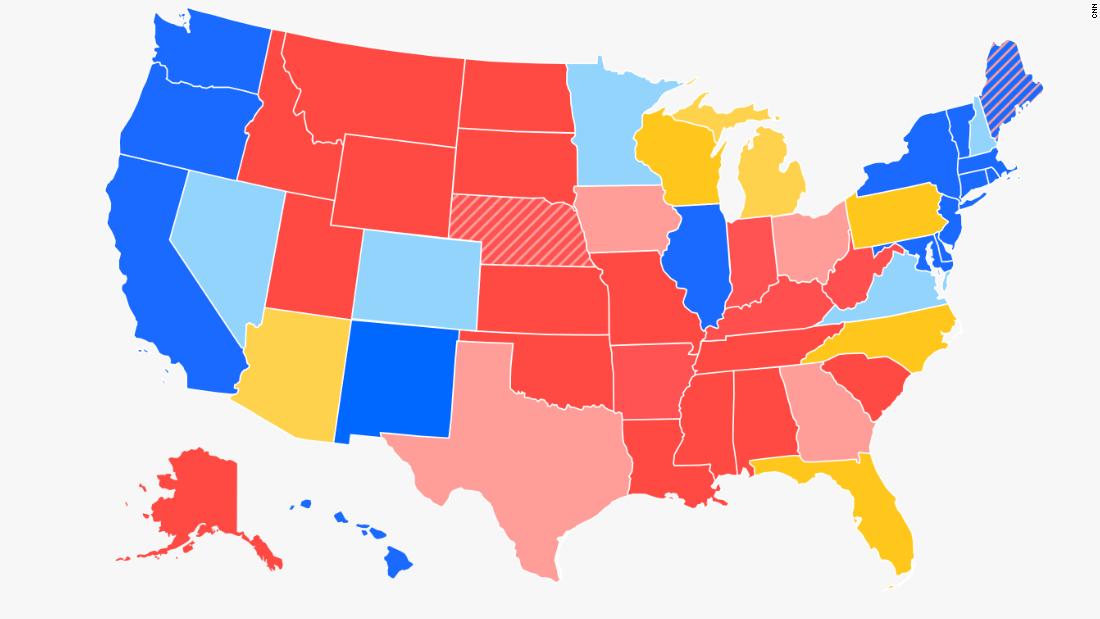“Biden’s Electoral College lead has narrowed to 279 to 187 for Trump,” wrote Cook’s Amy Walter of the moves. “Earlier this summer, Biden held a 308 to 187 lead.”
“In early June The Economist published its own statistical forecasting model for this November’s presidential contest to guide such handicapping. Back then, it gave Donald Trump at best a one-in-five chance of winning a second term. But by July, as unrest and the coronavirus ravaged the nation, his odds had slumped to as low as one-in-ten. There they stayed until the middle of August. Now, our model shows Mr Trump has clawed back a sizeable chunk of support.”
That question is difficult to answer with any sort of certainty for a few reasons — most notably that we are still 53 days from the election. And we are still in the grips of a pandemic that is projected to kill more than 400,000 Americans by the end of the year. And in the middle of a national conversation about race that has sparked protests — peaceful and violent — across the country. And with the least predictable or traditional person in the White House in modern American history.
In short: The last two-ish months before an election are always chaotic and somewhat unpredictable. That goes quadruple for this election.
But simply because we can’t say anything definitive doesn’t mean there’s nothing to see here. And what these latest stirrings in the electoral map look like are a sort of return to normalcy in the electorate as opposed to any major movement in Trump’s favor.
Think of if this way: The electorate is like a rubber band. The dual summer crises of the death of George Floyd and the mounting death toll in the United States from coronavirus stretched that rubber band heavily in Biden’s direction as voters rapidly lost confidence in the President’s ability to effectively deal with the pandemic and/or direct a serious national dialogue about race and policing. All that’s happened in the last month or so is that the rubber band has returned slightly closer to its normal level of tension. It hasn’t begun to be stretched in Trump’s direction and, in fact, it still is more in Biden’s favor, although slightly less so than, say, two months ago.
“Context is key tho. We give Trump less than half the chance we would have at this point in 16 if we ran the same model. The last 2 weeks (post-convention) are typically the incumbent’s best of the cycle—yet polls moved modestly, if at all, and POTUS’s odds are only 3 pts better.”
That’s not to say that Trump can’t win. He absolutely can. But it is to say that he, despite some recent movement in places like Florida and Nevada (and even Pennsylvania) in his favor, remains a clear underdog to beat Biden to 270 electoral votes. Still.

